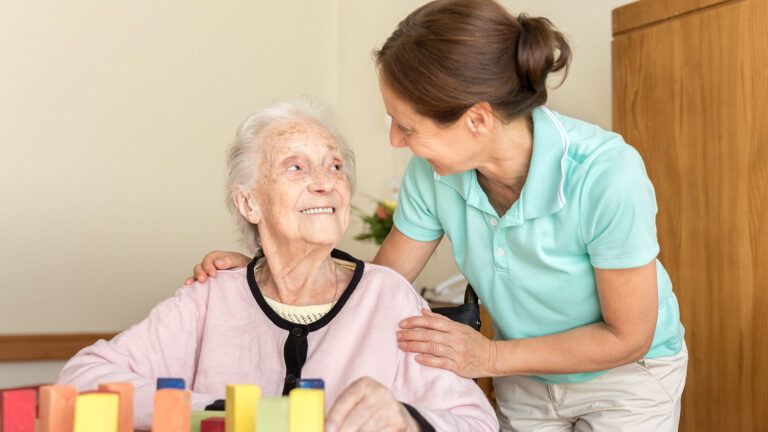Content provided by Philips Lifeline.
Most of us caregivers don’t even realize we’ve become isolated until we’ve been disconnected for a while. Caregiver isolation comes on gradually, starting with a single decision to skip a social activity. That becomes a habit and soon enough it’s difficult to get out of our routine even to run a small personal errand.
As an older adult’s dependence on us increases, we may begin leaving the house less and less. Our dedication to caring for loved ones may overshadow other aspects of our life that are important to our own emotional health. The resulting caregiver loneliness and social isolation takes a serious emotional toll and can even lead to caregiver burnout.
According to the National Family Caregivers Association, 91 percent of caregivers say they are concerned about their own mental and emotional health, and many of these caregivers report feelings of isolation and loneliness due to their duties at home.
But we can avoid isolation, loneliness and depression with a healthy amount of caregiver support and a strong social life. Here are four ways to build up your network and stay connected.
1. Ask for a hand. It’s hard to ask for help, but it’s as important to your wellbeing as it is to your parents’. Getting others to help with specific tasks frees up some of your time while inviting friends and family to be helpful and connected. Having trusted helpers around the house takes care of important tasks, gives you a break from caregiving, and provides the chance to interact. If you don’t have family or family nearby, ask friends, neighbors, or members of support or social groups you participate in.
2. Keep in Touch. Caregiving can quickly demand all of your time, and friendships often get neglected as a result. Schedule time to call or meet with friends on a regular basis to maintain friendships and build a stronger support network. Exchange less formal emails and texts for quick connections.
3. Join a Support Group. When you think you’re the only person in the world who feels like you do, it can be life changing to find a room full of people who understand. Face-to-face caregiver support groups are ideal, there are a host of online support groups that allow you to talk with other caregivers online 24 hours a day every day of the year. These groups are especially valuable for caregivers who have homebound loved ones and little other support.
4. Use Respite Care. While family and friends can spell you occasionally, many faith-based and community service groups offer these services more formally. Schedule respite care regularly to create time for your favorite exercise class, a lunch date with friends, time for your favorite hobby, or even a doctor’s appointment of your own. If it’s feasible, consider adult day care one or more days a week. These facilities provide a safe and engaging environment for your aging parent so you can pursue other activities without worry.
5. Get professional help. If your feelings of isolation are chronic or acute, or if you feel hopeless or anxious, you need and deserve professional attention. Call a support line or your physician for a referral to a mental health expert to work with you to find ways to make these feelings abate.
Finding the right mix of caregiver support gives us necessary breaks, important help and the peace of mind we need to take care of our own emotional health and the health of our senior loved ones.
Don’t disregard professional medical advice, or delay seeking it, because of what you read here. This information is not intended as a substitute for professional consultation, diagnosis or treatment; it is provided “as is” without any representations or warranties, express or implied. Always consult a healthcare provider if you have specific questions about any medical matter, and seek professional attention immediately if you think you or someone in your care may be suffering from a healthcare condition.






